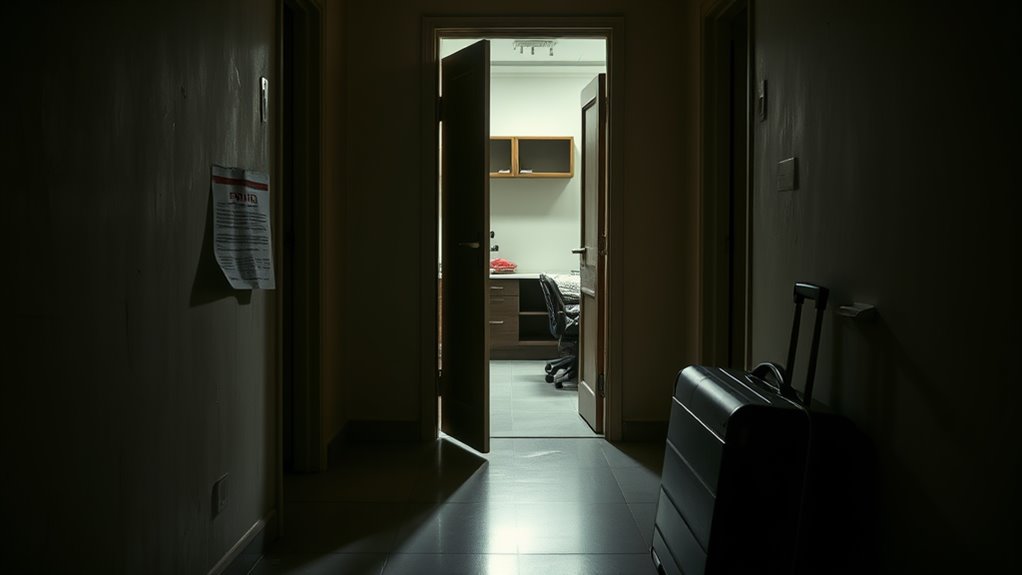Imagine you’ve just moved into an apartment in Kuala Lumpur, only to find your landlord entering without notice and ignoring your repair requests. This situation highlights the importance of knowing your tenant rights in Malaysia, which can protect you from such inconveniences. Understanding these rights isn’t just about avoiding disputes; it can also empower you to make informed decisions throughout your rental experience. So, what specific rights should you be aware of, and how can they impact your living experience?
Understanding Tenant Rights
When you’re renting a property in Malaysia, it’s crucial to understand your rights as a tenant. You might think that just paying rent gives you peace of mind, but that’s not all.
For instance, you have the right to privacy and peaceful enjoyment of your home. If your landlord wants to enter, they must give you notice—usually 24 to 48 hours in advance.
Imagine being startled when someone just walks in without warning; that’s not acceptable.
Key Components of Tenancy Agreements
A tenancy agreement is your safety net as a tenant, clearly outlining the expectations and responsibilities between you and your landlord.
It’s vital to understand what goes into this legally binding document to protect yourself and avoid future headaches.
Here are three key components you should look for:
- Rent Details: This includes the exact amount, due date, and any late fees. You don’t want surprises when the rent is due!
- Duration and Renewal: Know how long you’re committing to the rental, usually one to three years, and whether you can renew. It’s better to be prepared than to be caught off guard.
- House Rules: Don’t forget about clauses regarding pets and subletting. Clear rules can prevent misunderstandings that lead to disputes later on.
Lastly, don’t skip the legal review and stamping.
It’s vital for ensuring the agreement’s validity and protecting your rights.
Obligations of Tenants and Landlords

Understanding the obligations of both tenants and landlords is crucial for a smooth rental experience. As a tenant, you’ve got to pay your rent on time, keep the property clean, and let your landlord know right away if something needs fixing. It seems simple, but not notifying them can lead to bigger issues down the line, which can make your living situation unsafe.
On the other hand, landlords have their own responsibilities. They need to maintain the property and handle urgent repairs swiftly. If they need to enter your space, they must give you a heads-up 24 to 48 hours in advance. Imagine coming home to find someone in your living room without warning—it’s unsettling, right?
Then there’s the security deposit, typically two months’ rent, which can be used to cover damages you might cause. Both parties must stick to the tenancy agreement, which might include rules about pets or alterations.
Financial Considerations in Renting
Financial stability is vital for a smooth renting experience in Malaysia. Before you plunge into renting, it’s important to understand the financial obligations you’ll face. Many tenants overlook these aspects, leading to stress and frustration later on.
Here’s what you need to keep in mind:
- Security Deposits: Typically, you’ll need to pay two months’ rent as a security deposit, plus an extra half month for utilities. That’s a hefty 2.5 months upfront!
- Stamp Duty: Don’t forget about the stamp duty on your tenancy agreement—it’s RM1 for every RM250 of rent for agreements under a year. For longer ones, it’s RM2!
- Utility Bills: These can vary widely and are often your responsibility. Make sure you’re budgeting for them, or you might find yourself in a tight spot.
Lastly, always clarify any extra fees in your agreement, like administration charges.
And don’t forget to keep an emergency fund handy for those unexpected expenses that can pop up, like repairs or rising utility costs. Being financially prepared can make your renting experience much smoother and less stressful.
Early Termination and Eviction Risks

Renting in Malaysia comes with its own set of challenges, and knowing your rights regarding early termination and eviction is key to protecting yourself.
It’s frustrating to think that if you need to cancel a fixed-term lease, you might still be liable for all the rent owed until the end of the agreement. Imagine moving for a job or a family emergency, only to find yourself stuck financially.
If the property gets sold, the good news is that the new owner must respect your existing rental agreement, as long as it’s registered as a lease. This gives you some peace of mind.
However, you can face eviction if you fall behind on rent or if there’s significant damage to the property. This often leads to eviction notices and legal proceedings, which can be overwhelming.
What’s really crucial is to communicate openly with your landlord if you’re having financial difficulties. Early notice might help you negotiate a solution before things escalate to eviction.
Essential Tenant Dos and Don’ts
When managing your tenancy in Malaysia, there are several vital dos and don’ts you should keep in mind to protect your rights and secure a smooth rental experience.
It can be frustrating when things go wrong, but following these guidelines can make a big difference.
- Read Your Tenancy Agreement: Before signing anything, confirm you understand all your rights and responsibilities. Skipping this step can lead to misunderstandings later on.
- Notify Your Landlord About Issues: If you notice any damages or repairs needed, tell your landlord right away. This helps maintain a good relationship and prevents disputes down the line.
- Document Everything in Writing: Keep a record of significant discussions and agreements. Verbal promises mightn’t stand up if things get messy.
Adhering to house rules is just as vital. Ignoring them could lead to penalties or even eviction, which nobody wants.
Remember, open communication is key. If you’re feeling uncertain about something, don’t hesitate to reach out. It’s much better to resolve issues early than deal with bigger problems later.
Safe renting starts with being informed!
Legal Framework Governing Tenancy

Understanding your rights as a tenant is vital not just for a smooth rental experience but also for maneuvering the legal landscape surrounding tenancies in Malaysia. Unfortunately, the country lacks thorough laws specifically for rentals, which can leave many tenants feeling frustrated and vulnerable.
Right now, your rights are primarily governed by the Contracts Act 1950 and the Civil Law Act 1956. If your rental agreement is under three years, it’s classified as a tenancy and doesn’t need registration, but leases longer than that do.
It’s frustrating that a proposed Residential Tenancy Act aimed at enhancing protections is still not enacted. You should know that you can seek legal help if your landlord tries to evict you unlawfully—thanks to the Specific Relief Act 1950, which protects you from being kicked out without a court order.
Also, keep in mind that you have rights against discrimination and the right to privacy in your rented home. Traversing this landscape can feel overwhelming, but familiarizing yourself with these rights is a significant step toward ensuring your safety and security as a tenant.
Importance of Effective Communication
Effective communication is key to a successful tenancy, helping you and your landlord avoid misunderstandings and build a positive relationship.
When you face issues, whether it’s a leaky faucet or a broken heater, it’s vital to communicate these problems promptly. This way, you can guarantee swift resolutions and prevent issues from escalating into bigger headaches.
Here are three significant points to remember:
- Report Issues Quickly: Don’t wait to let your landlord know about maintenance problems. The sooner you inform them, the sooner you can get things fixed.
- Keep Records: Maintain written records of all communications, especially regarding repairs or payment agreements. This protects both you and your landlord in case disputes arise.
- Regular Check-Ins: Establish a routine of checking in with your landlord. This can help clarify property expectations and any changes in rental terms.
Additional Resources and Support

Steering through the complexities of tenant rights can be challenging, but numerous resources are available to help you. For instance, the Malaysian Bar Council’s website is a valuable repository of information, breaking down your rights and the legal frameworks that surround rental agreements.
It’s reassuring to have a place where you can find clarity amidst confusion.
You might also want to connect with local housing rights organizations. They often provide support services, including legal advice for those facing disputes or unfair treatment.
Imagine being in a situation where your landlord isn’t responding to urgent repairs; having someone to advocate for you can make a world of difference.
With the proposed Residential Tenancy Act on the horizon, staying updated is essential. You never know how these changes might affect your situation.
Moreover, property rental platforms often feature articles and guides filled with FAQs that can help demystify the rental process.
Lastly, don’t underestimate the power of community. Joining local tenant associations can offer you peer support and insights, making the expedition a bit easier.
Frequently Asked Questions
What Is the Tenancy Law in Malaysia?
In Malaysia, you’ll find no thorough tenancy law. Instead, rental agreements fall under the Contracts Act. Be aware of your rights against unlawful eviction, ensuring you’re protected from unfair treatment by landlords.
What Is the Biggest Responsibility of a Tenant?
Your biggest responsibility as a tenant isn’t just paying rent on time—it’s like guarding your home’s fortress! Keeping the place clean and safe certifies your sanctuary remains intact, preventing chaos and potential eviction.
Can a Landlord Enter Without Permission in Malaysia?
No, a landlord can’t enter without your permission in Malaysia, unless it’s an emergency. You have the right to privacy, so always guarantee they give proper notice. Document any unauthorized entries to protect yourself.
Who Pays for a Tenancy Agreement in Malaysia?
In Malaysia, the landlord usually pays for drafting the tenancy agreement, but you’re responsible for the stamp duty. It’s crucial to clarify all costs upfront to avoid any unexpected financial surprises later on.
Conclusion
Renting in Malaysia can feel like traversing a maze, where one wrong turn can lead to frustration or disappointment. Remember the story of my friend who thought they understood their rights but ended up facing an unexpected eviction. It taught us that being informed is key. So, before you sign that tenancy agreement, take the time to learn about your rights and responsibilities. It’s the best way to guarantee your new home is a place of comfort, not stress.